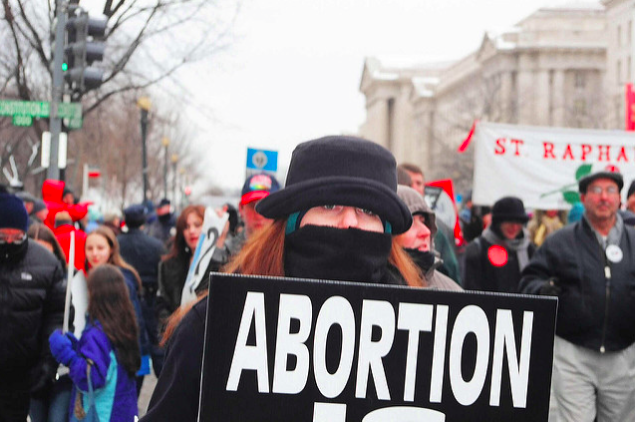Abortion Education Should be Integrated Into MCPS Health Curriculums
Photo Courtesy of Creative Commons
Regardless of moral opinion, medical abortion should be taught in an unbiased manner to students in health classes.
January 4, 2017
In world history classes, students are taught a wide span of religion views without bias. For instance, In 1962, the U.S. Supreme Court ruled that it is unconstitutional for state officials to compose an official school prayer and encourage its recitation in public schools. This case, among others, clearly established that in public schools church and state must be separate. So why should medical practices be taught any differently?
Regardless of religious or moral beliefs of teachers, administrators, or course drafters, health courses in high schools must be required to teach the medical process abortion and its laws as a part of their curriculum.
Health classes are not currently required to teach about abortion during their unit on sexual health, contraceptives, and the various stages of pregnancy. Thus, teachers may currently choose for themselves whether or not to teach it.
Regardless of their own religious or moral beliefs, teachers must stick to teaching all medical options for contraception. Of course, it it crucial to teach students how to prevent unwanted pregnancy. In such a situation, the students are given the tools they need to then go on to formulate their own opinions.
Abortion should be taught in the same way, without regard to bias, just presenting students with options and allowing them to apply their own beliefs to their real-life decisions.
Contraception, for example, is not accepted by various religious beliefs. However, it is still taught in class to ensure that students are equipped with the information that’s out there, and they can they go on to choose whether or not to apply it in their own lives.
It is especially important to teach the laws in Maryland regarding to abortion today, before 2018.
According to the Huffington Post, Maryland Governor Larry Hogan signed legislation in May of 2016 that will provide free, over-the-counter emergency contraceptives to women. These over-the-counter drugs, better known as Plan B, may be considered a form of abortion to many.
However, if students are not informed of their options, guaranteed to them by state law, they may end up making some incorrect decisions that could lead to life-altering changes. It is the responsibility of health classes to inform students of how they can be in control of their health. By being informed, they will have a game plan for when difficult situations arise.
According to the Advocates for Youth foundations, despite efforts in health classes to push abstinence, 62 percent of U.S. teens are sexually active by their senior year in high school.
This statistic gives even more the reason to inform this majority of students of the options that are available to them, living in a country that guarantees legal abortions to any woman, thanks to the renowned Supreme Court Case Roe v. Wade.
Some students’ religious or moral beliefs may prevent them from applying the information they learn, so of course medical abortions should be taught in an unbiased, matter-of-fact manner in respect to these students. However, they must be equipped with information to understand the options available, to themselves and to their friends and peers.


